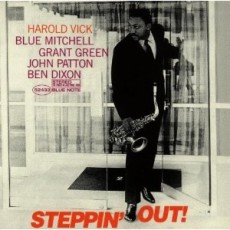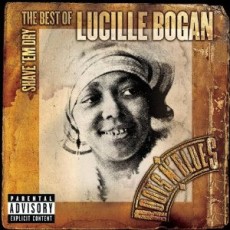
Daily Dose Of Jazz…
Harold Vick was born on April 3, 1936 in Rocky Mount, North Carolina. His uncle, reed player Prince Robinson gave him a clarinet when he was thirteen and two years later he switched to the tenor saxophone. He rose to prominence playing with organ combos in the mid-60s performing and recording with Jack McDuff, Jimmy McGriff and Big John Patton among others.
During this period in his career Harold also performed and recorded as a leader releasing eight albums between 1963 and 1977. He would work with the likes of Blue Mitchell, Ben Dixon, John Patton, Bobby Hutcherson, Walter Bishop Jr., Grady Tate and Teddy Charles, just to name a few. Also working as a sideman he performed and recorded with Grant Green, Shirley Scott, Nat Adderley, Aretha Franklin, Dizzy Gillespie, Mercer Ellington, Sarah Vaughan, Billy Taylor, Donald Byrd, Horace Silver, Ray Charles and Gene Ammons.
He played in films such as “Stardust Memories” and “Cotton Club”, in which he played a musician. He also was in the Spike Lee film “School Days” and was featured on the soundtrack for “She’s Gotta Have It”.
Harold Vick, tenor saxophonist and flautist in the hard bop and soul jazz genres passed away on November 13, 1987.

Daily Dose Of Jazz…
Larry Coryell was born April 2, 1943 in Galveston, Texas moved to Washington as a child. After graduating from Richland High School in eastern Washington, he moved to Seattle to attend the University of Washington.
In 1965, Coryell moved to New York City where he became part of Chico Hamilton’s quintet replacing Gabor Szabo. In the Sixties he recorded with Gary Burton, played with The Free Spirits and extended his musical landscape to include influences of rock, jazz and eastern music.
He formed his own group, “The Eleventh House” in 1973 and following the break-up of this band, Coryell played mainly acoustic guitar but returned to electric guitar later in the 1980s.
In 1979, Coryell formed “The Guitar Trio” with jazz-fusion guitarist John McLaughlin and flamenco guitarist Paco de Lucia. The group toured Europe, released “Meeting of Spirits” recorded at Royal Albert Hall in London, however, his drug addiction led to his being replaced by Al Di Meola.
By the turn of the century he settled back into a more mainstream style of playing releasing “Cedars of Avalon”, “Monk, Trane, Miles & Me”, “Tricycles”, and “Power Trio: Live In Chicago”. In 2007, Coryell published an autobiography titled “Improvising: My Life in Music”. Guitarist Larry Coryell remains active in the music industry performing, touring and recording.
More Posts: guitar

Daily Dose Of Jazz…
Lucille Bogan was born in Amory, Mississippi on April 1, 1897 but was raised in Birmingham, Alabama and at age five she was named Lucille Anderson. In 1916 she married railway man Nazareth Lee Bogan and she received her training singing in the rowdiest juke joints of the 1920s. She first recorded vaudeville songs in New York for Okeh Records in 1923. That same year she recorded “Pawn Shop Blues” in Atlanta, which was the first time a black blues singer had been recorded outside New York or Chicago.
Among the first blues singers to be recorded, in 1927 Lucille signed with Paramount Records in Chicago, recording her first big success, “Sweet Petunia”, later covered by Blind Blake. By 1930 her recordings had begun to concentrate on drinking and sex, with songs such as “Sloppy Drunk Blues”, “Tricks Ain’t Walkin’ No More” and “Black Angel Blues” later covered by B. B. King as “Sweet Little Angel”. She would later record for Brunswick Records.
Many of Bogan’s songs, most of which she wrote herself, have thinly-veiled humorous sexual references with the theme of prostitution featured prominently in several of her recordings. In the early Thirties Lucille returned to New York and recorded prolifically under the pseudonym Bessie Jackson until the middle of the decade. Lucille Bogan does not appear to have recorded after 1935, spending some time managing her son’s jazz group, Bogan’s Birmingham Busters, before moving to Los Angeles, where she died on August 10, 1948 from coronary sclerosis.
More Posts: vocal

